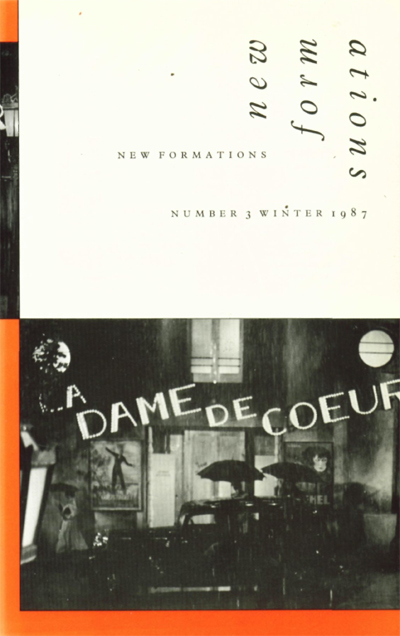
On the melancholic imaginary
New Formations - Print ISSN 0950-2378 - Online ISSN 1741-0789
Volume 1987 Number 3
On the melancholic imaginary
Julia Kristeva
Abstract
Kristeva looks at the psychoanalytic concept of melancholia, in relation to the love/hate dialectic as expressed in personal relationships, and via the writings of Freud and Klein. She takes as case studies a sonnet by Gerard de Nerval and Dostoevsky’s novel The Devils. Dostoevsky’s approach to melancholia is addressed through his epileptic characters, since writers from Aristotle onwards have associated the two conditions, and The Devils is read for its parallels with the Biblical Book of Job in terms of the representation of suffering. Finally, Kristeva considers advances in the understanding of brain chemistry and what impact these might have on such psychoanalytic concepts.
SORRY - you are not registered as being permitted online access to the full text of this article
You have the following options:
- If you are viewing this via an institution or academic library you can ask that your institution takes out a Subscription to this journal.
- If you already have a Personal Subscription please login below
Forgotten your username / password? Click here to locate
- Purchase an annual Personal Subscription
PRINT + DIGITAL personal subscription (£45 / year)
DIGITAL personal subscription (£30 / year)
A Personal Subscription provides immediate access not only to the single article you are seeking, but also to all past and future articles in this journal up to the expiry of your annual (calendar year) subscription. - Purchase immediate access to this single article (UK£7.00) - Buy article Coming Soon
To cite this article
Julia Kristeva (1987) On the melancholic imaginary, New Formations, 1987(3)
